What are modal verbs? How are they different from other verbs? How are they conjugated? Let's find out.
Modal verbs are a special group of verbs that, unlike all other verbs in the German language, do not describe an action, but rather express the speaker's attitude toward the action. This can be the possibility, necessity, or desirability of performing an action. There are six main modal verbs in German: dürfen, können, mögen, müssen, sollen, and wollen.
The meaning of modal verbs
According to their meaning, modal verbs can be divided into three groups:
1. können - to be able to, can, to know how to
dürfen - to be allowed to, to have permission
2. müssen - must, to have to, to be obliged to
sollen - should, to be supposed to
3. wollen - to want, to have a firm intention
mögen (möchten) - to want, would like
As you can see, the verbs in each group have very similar meanings. Nevertheless, they should be distinguished.
Ich kann schwimmen. - I can swim.
Du darfst mein Handy nehmen. - You may (=you have permission to) take my phone.
Ich muss morgen früh aufstehen. - I have to get up early tomorrow.
Sie sollen diese Tabletten nehmen. - You should (=You are supposed to) take these pills.
Ich will ins Kino gehen. - I want to go to the cinema.
But you should be careful with this verb. When communicating with someone, choosing between wollen and möchten to express preferences (e.g. about food), it’s better to choose the second one. Möchten is also more appropriate when addressing a specific person. For example:
Ich will Tee. - I want tea.
Ich möchte Tee. - I would like tea.
In Russian this difference is not so obvious, but a native German speaker would perceive the first request as childish or demanding ("I want tea now!").
That’s why it’s better to use möchten, which expresses the request more politely.
Conjugation of modal verbs in Präsens
You can find an article about the present tense in German (Präsens), including its usage and formation, here. The conjugation of modal verbs in Präsens differs from that of regular verbs in that they change the root vowel in singular forms (except for sollen) and do not take personal endings in the 1st and 3rd person singular.
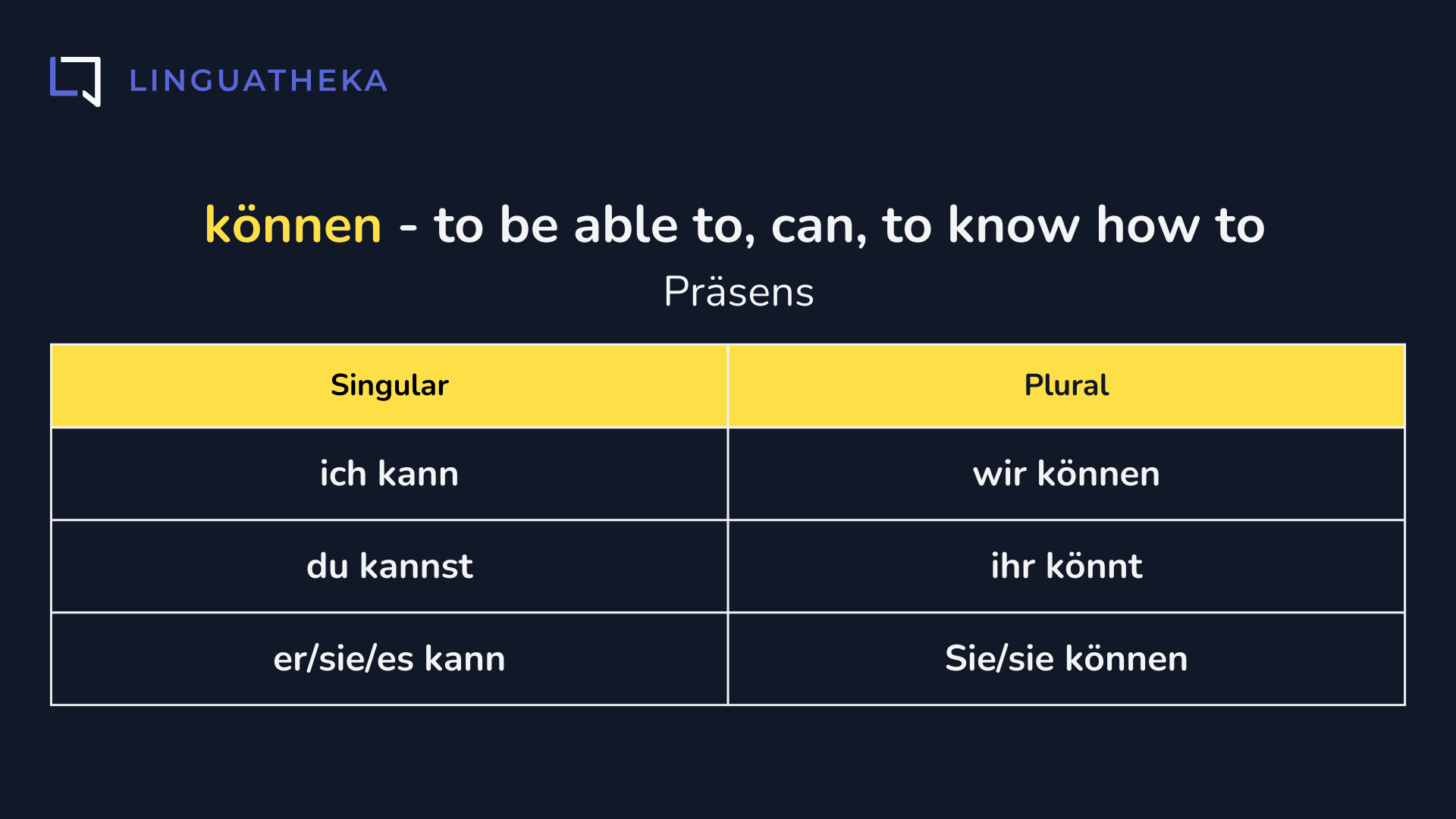
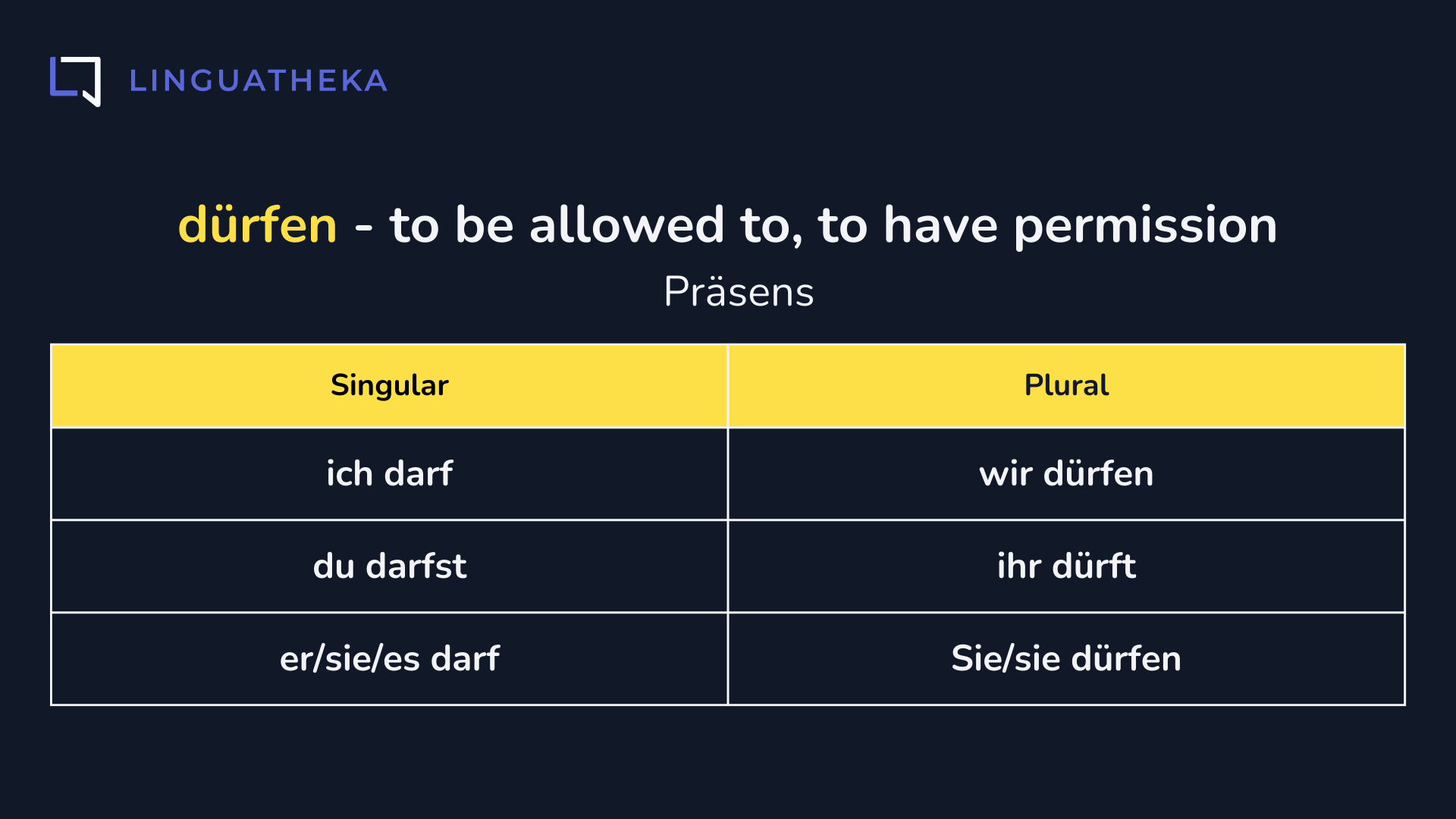
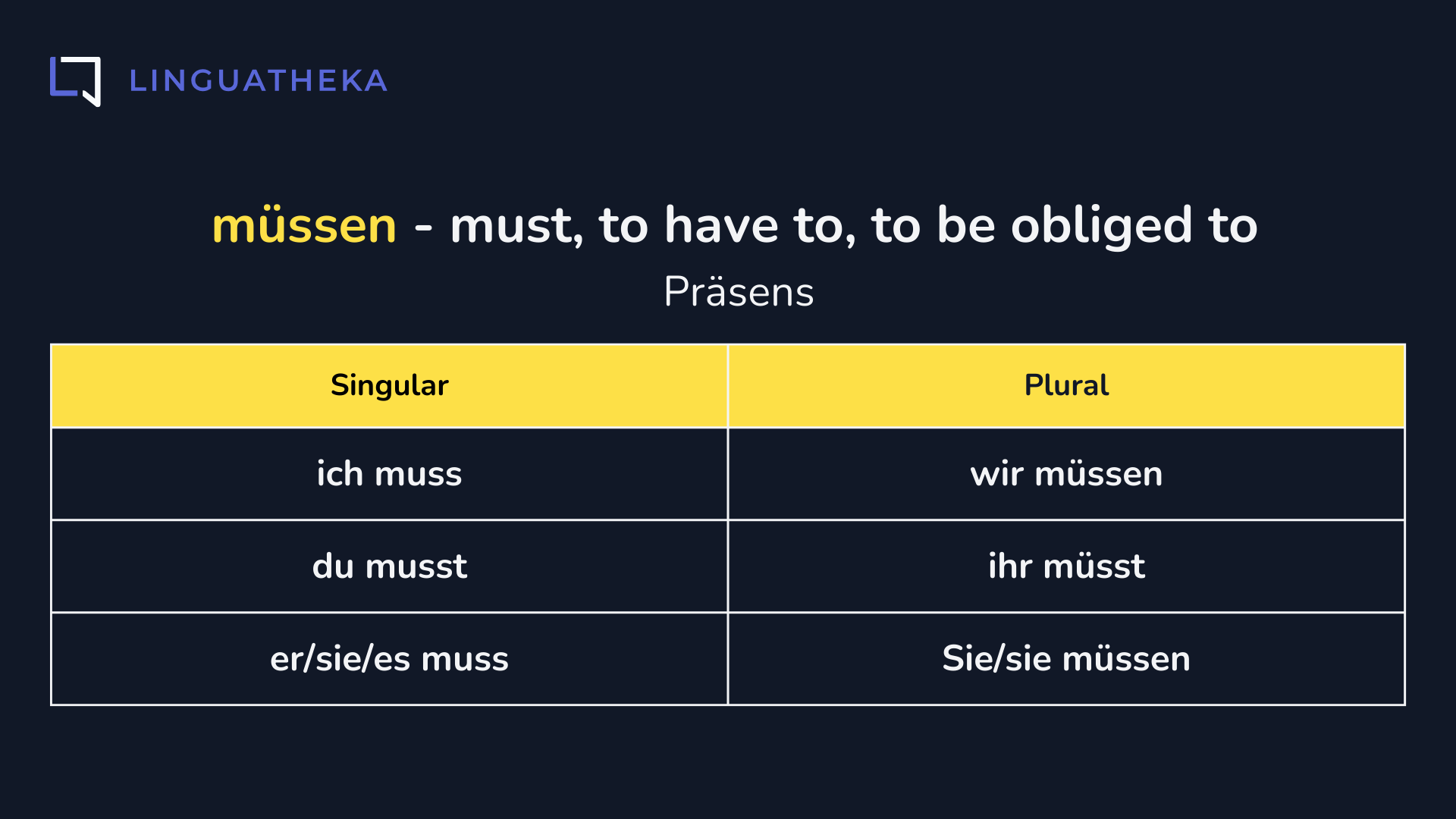
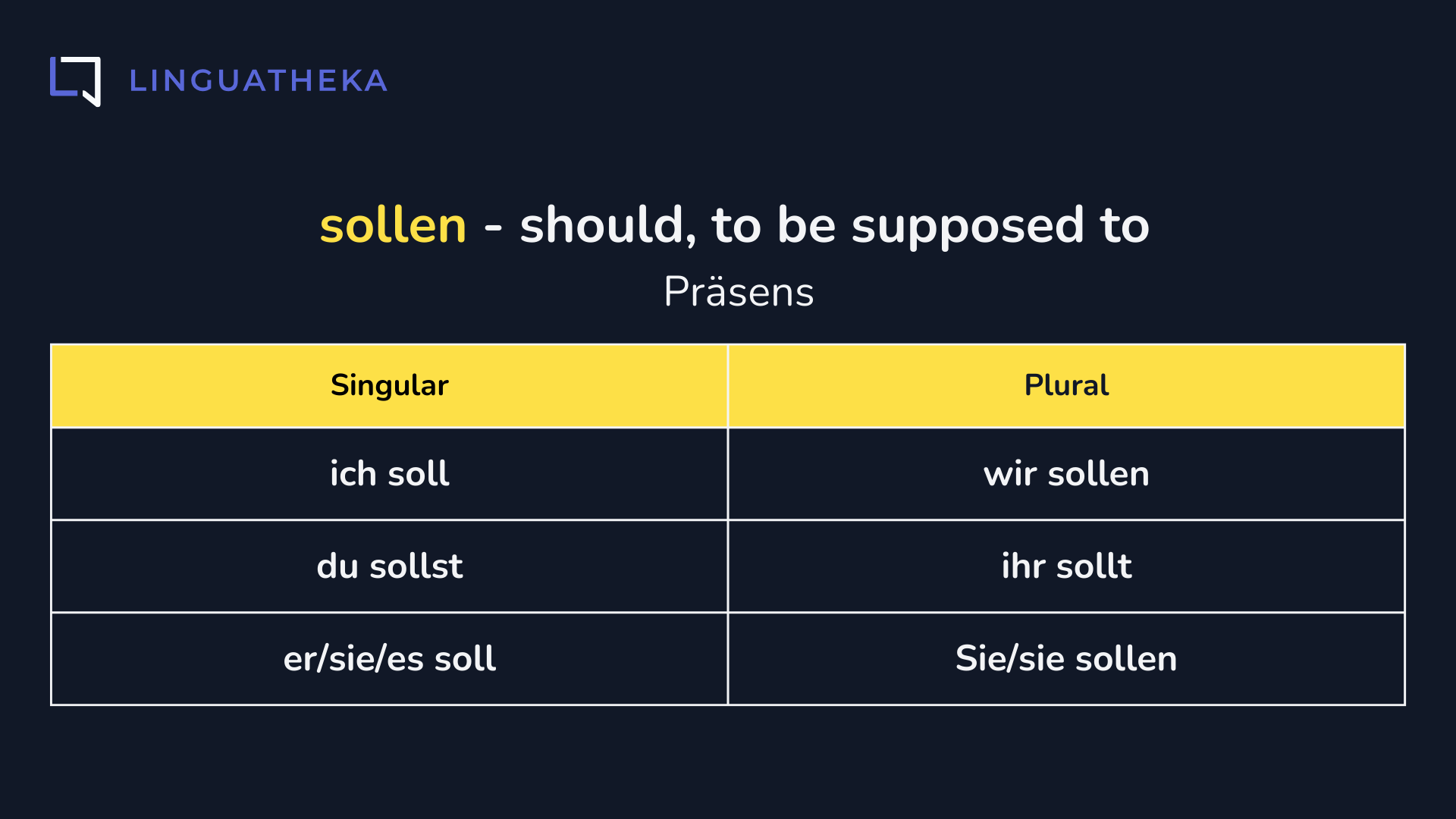
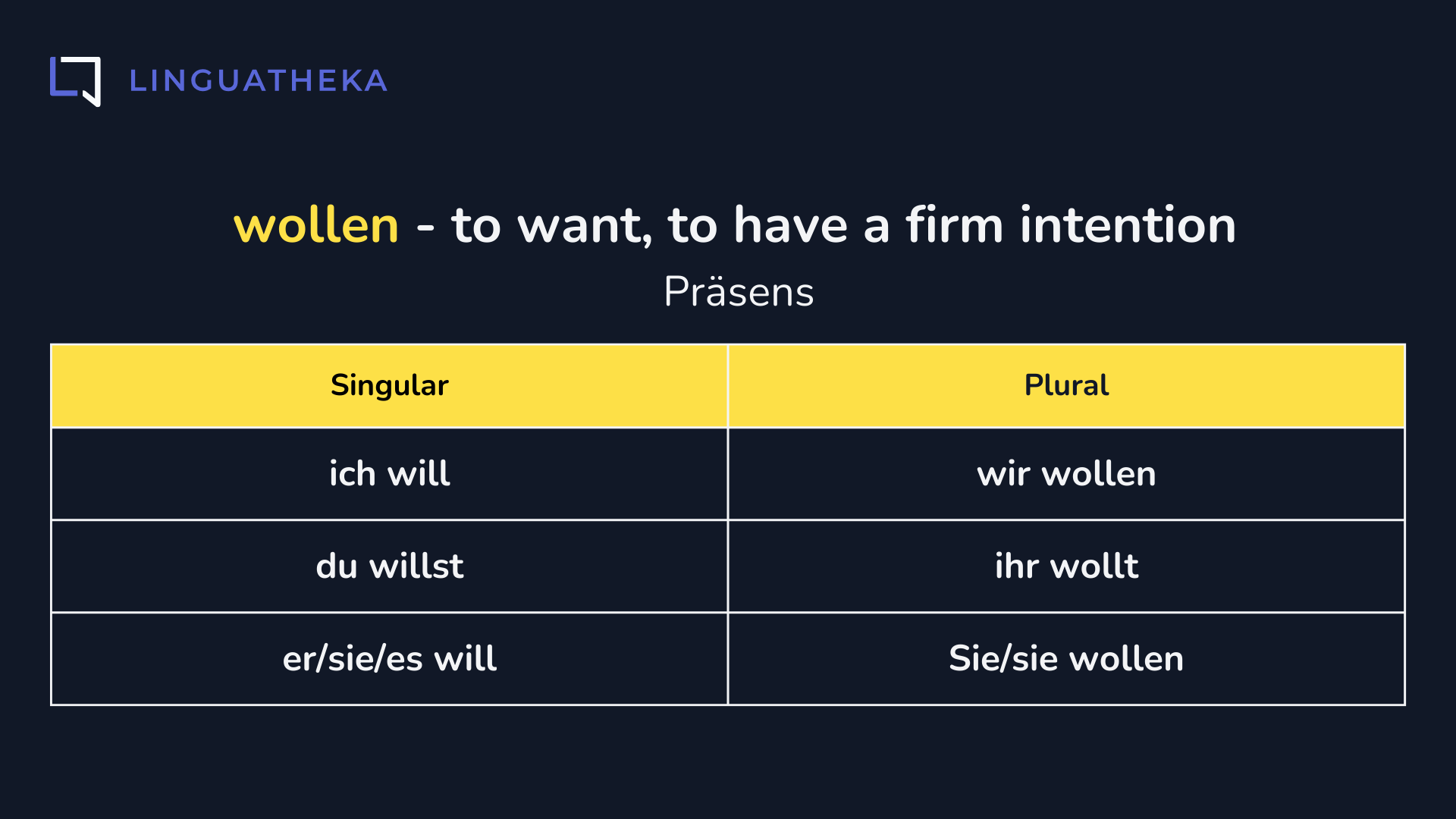
The verb mögen in German has different meanings depending on the mood - indicative (Indikativ) or subjunctive (Konjunktiv II).
In the indicative mood, mögen is used to express personal preferences or tastes. It’s a direct way to say that someone likes something:
Ich mag Kaffee - I like coffee.
In the subjunctive mood (Konjunktiv II), mögen often conveys desirability or politeness:
Ich möchte bezahlen - I would like to pay.
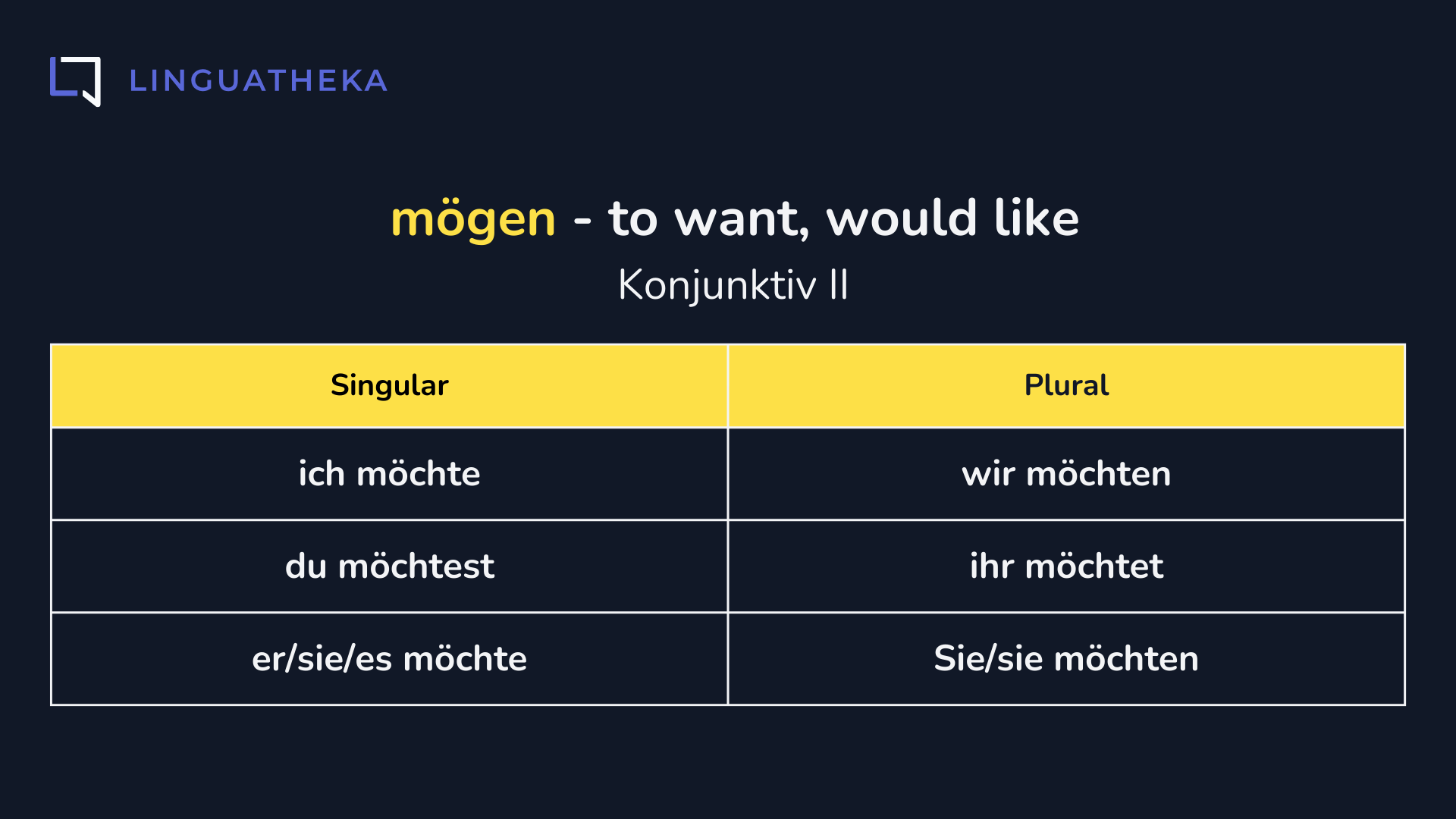
Features of using modal verbs
Since modal verbs do not express actions, they are not used independently but in combination with a full verb in the infinitive form.
Er kann gut Englisch sprechen. - He can speak English well.
However, modal verbs can change meaning depending on the context, and may also be used without a second verb. This often happens when the main verb is clear from context or the speaker assumes the listener understands the implied action. For example, in response to a suggestion to go to the cinema, one might simply say "Ich will" - I want to.
Kann ich? - May I? / Can I?
Soll ich? - Should I?
Willst du? - Do you want to?
Darf ich? - May I?
These simplified expressions make speech more casual and emphasize mutual understanding between speakers. It’s important to note that such forms are used less frequently in writing and are considered less formal.
Modal verbs are a key element of German grammar, and understanding how to use them will greatly enrich your ability to express opinions, desires, and obligations in German.
How clear and useful was the article to you?
Start now
days
hours
min
sec
Price €160.00
Language Deutsch, B1.2
Start February 26, 2026
Course Leichter Kurs B1.2
Group #124
Start now
days
hours
min
sec
Price €160.00
Language Deutsch, B1.2
Start February 26, 2026
Course Leichter Kurs B1.2
Group #124



